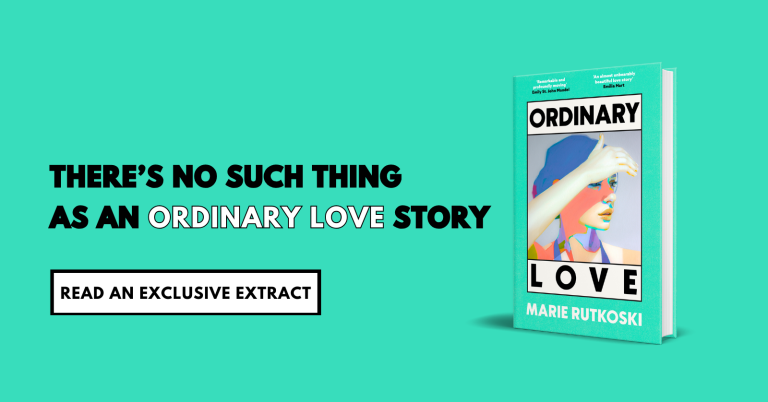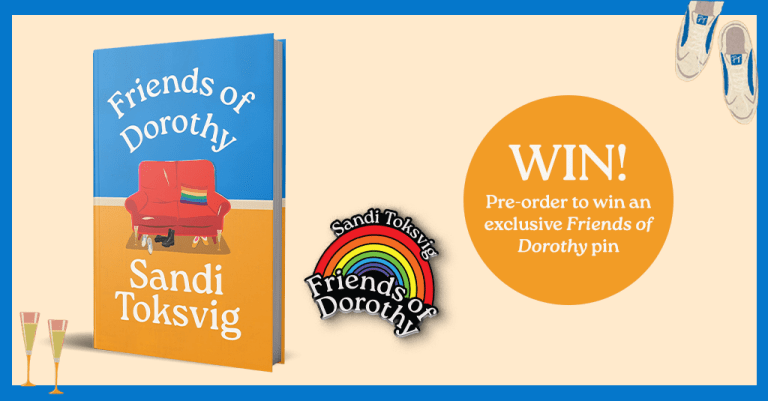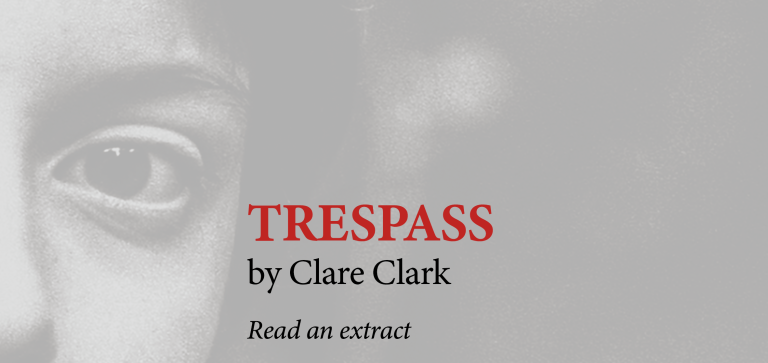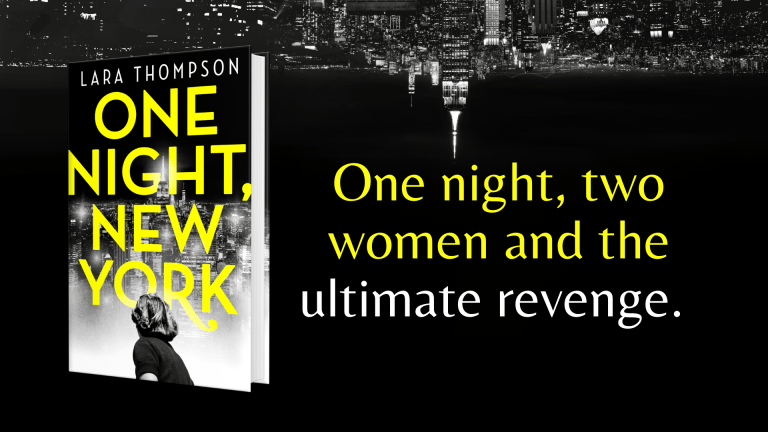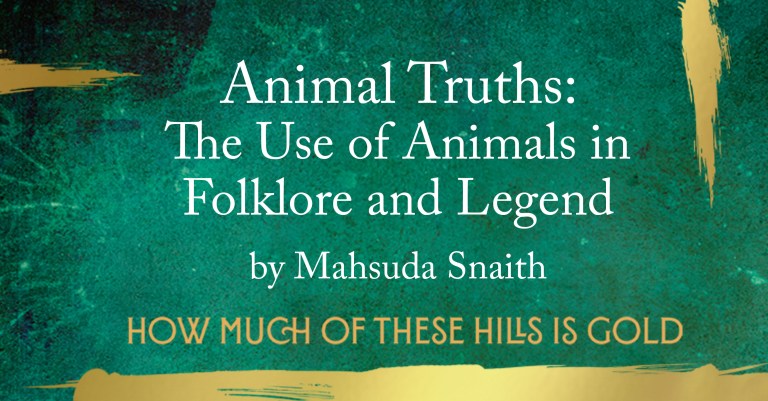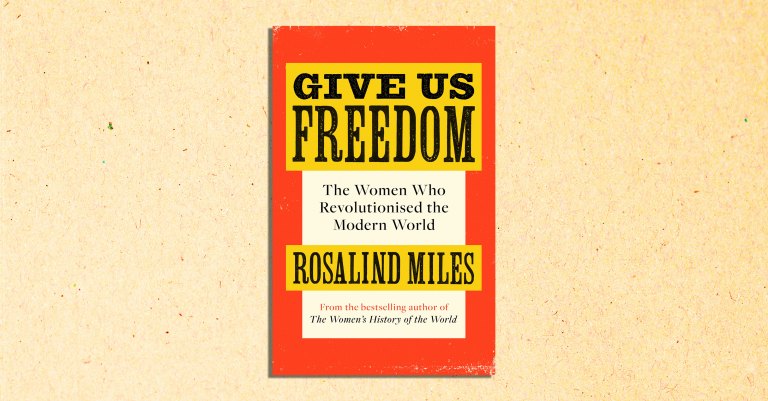Read an extract from The Fate of Mary Rose by Caroline Blackwood
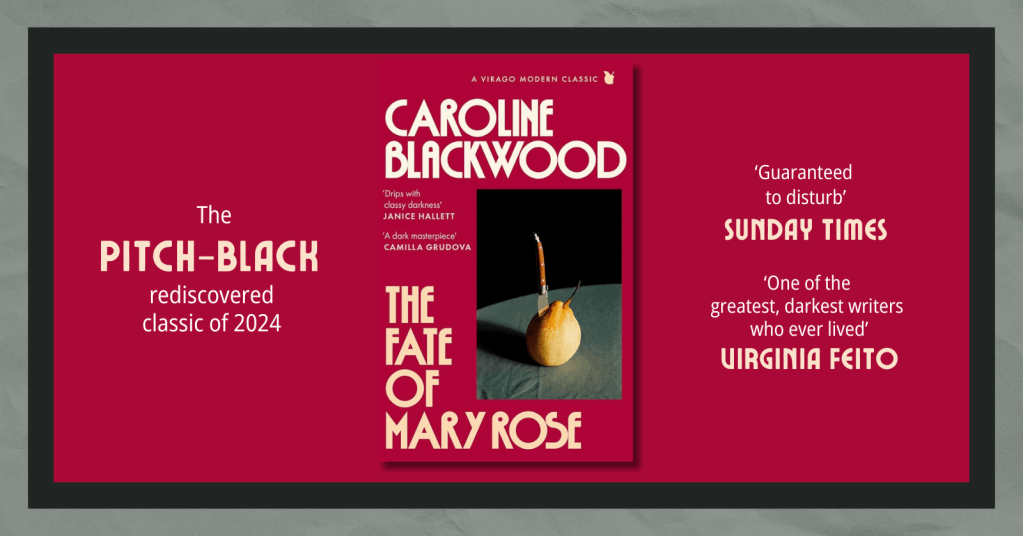
From the Booker-shortlisted author of Great Granny Webster, this twisted modern classic is perfect for fans of Shirley Jackson and Celia Dale.
‘One of the greatest, darkest writers who ever lived’ Virginia Feito
‘This chillingly profound story drips with classy darkness. . . a one-way descent into the abyss’ Janice Hallett
‘A dark masterpiece’ Camilla Grudova
‘Vibrates with a frenzied, manic menace’ Lucy Scholes
‘A devastating investigation of neurosis, hysteria and cruelty’ Observer
‘A winner . . . Guaranteed to disturb’ Sunday Times
‘Caroline Blackwood sits firmly alongside the greats like Shirley Jackson and Patricia Highsmith’ Araminta Hall
A child has been abducted from a sleepy Kent village, her face plastered across the media.
As the crime unleashes a wave of hysteria, the claustrophobic world of Rowan Anderson and his inscrutable wife begins to disintegrate. Consumed by her macabre fixation, Cressida is determined to save their sickly daughter, Mary Rose, from the same fate – and perhaps even from Rowan himself.
With caustic wit and pitch-black brilliance, Caroline Blackwood creates a skin-crawling – and utterly compulsive – story of repressed violence, female rage, and maternal obsession.
AN EXTRACT FROM THE FATE OF MARY ROSE
I was working one morning when my bell rang. A woman’s voice on the buzzer system said she was Cressida Rawlings. She asked me if I remembered her. I asked her to come up to my flat, although I felt violently annoyed by the interruption as I was going through some proofs. Cressida looked very agitated as she entered. When we shook hands, I noticed again that her pupils had the disturbing habit of shrinking until she appeared to have the gaze of a blind girl.
‘Are you working?’ she asked me, seeing the horrible chaos of my mountainous piles of papers. ‘I won’t keep you,’ she said.
I offered her a drink which predictably she refused. I poured myself a whisky with a martyred expression. When I’m working, I try never to drink in the daytime.
‘There’s something I think you should know,’ Cressida said.
I waited politely.
‘It’s not easy to explain why I’ve come here.’ Her voice had a hysterical quaver. Deliberately I did nothing to make things easy for her. My silent stare was quizzical and detached.
‘I’m having your child,’ she blurted.
‘Nonsense!’ I shouted. I was surprised by the fury of my own reaction. I slammed down my whisky glass so hard on my desk that it broke and blood spurted from my hand.
‘Is your hand all right?’ she asked. Her pallor was ghastly. ‘No my hand isn’t all right! Isn’t it obvious that I’ve cut it? But how dare you come and disturb me when I’m working!’
‘I thought you ought to know,’ she said.
‘I don’t want to know. Why should I believe you anyway? I’ve only met you once. I haven’t seen you for months. Then you suddenly appear and tell me you are having my child. Even if it’s true that you are pregnant, why should I believe the child is mine?’
Cressida jumped as if I had struck her. Her pale dazed eyes looked deeply shocked. She didn’t speak. It was as if she couldn’t think of anything to say. I remember looking out of the window of my flat and noticing how dull and oppressive the sky was.There were no clouds. It was one great expanse of unbroken grey.
‘You’d better have an abortion,’ I said. I bandaged my bleeding hand with a handkerchief. Again she jumped as if I’d hit her. ‘Oh no!’ She sucked in the words with a sort of hiss.
‘It’s the only sensible thing for you to do.’
‘Never!’ she said. I saw her pupils shrinking. Her mouth twitched. I realized she was enraged but I didn’t care.
‘You can’t expect any help from me,’ I said. ‘I don’t want to have a child, even if it is my child.’
‘It’s my child. Never forget that!’ She looked suddenly extremely malevolent, like a spitting angry cat. Cressida rarely showed anger but she showed it to me then. ‘You can’t make me destroy my child!’ she said.
‘I can’t make you do anything,’ I answered. ‘But I’d like you to go now. You’d better work out this depressing messyourself. It’s your fault . . . I don’t want to know anything about it. So for God’s sake don’t come round bothering me.’
She left then with outraged silent dignity. I was just as angry as she was. I hadn’t been polite. I hadn’t tried to be sympathetic. I felt no remorse. In order to forget Cressida’s distasteful and disruptive visit, I buried myself in my proofs. My hand kept bleeding. I hated Cressida when I saw drops of blood making disgusting messy spots on the whiteness of the page.
I never told Gloria about Cressida’s visit. I suppose from the start there was something wrong with our relationship, for I always wanted to conceal important things from her. I didn’t want her to become involved in my dilemma. I immersed myself in my work and rarely gave a thought to Cressida. Locked up in my study, I had the illusion that Cressida couldn’t find me and I could convince myself that this creepy white-skinned girl and her distasteful pregnancy would go away.
She didn’t go away. Subconsciously I must have felt some anxiety about her. I heard nothing from Cressida for about three months and one day, feeling exhausted after having worked hard all morning, I took a walk to refresh myself and I found that I was passing the florist’s shop where I had originally met her. Something compelled me to go in to see if she was still working there. It was a shock seeing her. She was mixing carnations with feathery green fern and wrapping them up in tissue paper. When she saw me her aquamarine eyes looked at me so blankly that I wasn’t quite sure if she remembered who I was.
‘How are you?’ I said.
‘I’m very well.’ Politeness was starting to grip us in the way that hoar frost can grip mud and turn it as hard as rock.
She was very pregnant. To me she looked obscenely pregnant. Her frail body looked incongruous carrying such an immensely protruding abdomen. Her swollen belly seemed like a malignant growth. Her face was whiter than ever. It was also much thinner. She had dark panda like smudges under her eyes. She looked extremely unwell.
‘So you decided to have it,’ I said.
Her eyes suddenly flashed with crazy defiance. ‘Naturally,’ she snapped. ‘No one can stop me!’
‘I imagine it’s much too late for that now.’ I stared despondently at her stomach.
‘I am very happy,’ she said aggressively.
‘When is it coming?’ I asked.
‘In three months.’ ‘Can you manage?’
‘I’ll have to.’ Our dialogue was deadly. ‘Where are you going to live?’
‘I don’t know.’
‘Do you still have the same flat?’
‘For the moment. But I can’t stay on there. My landlord won’t allow dogs or children.’
‘Where will you go?’
‘I don’t know.’ Her aggressive attitude suddenly vanished and for a second she looked quite desperate.
‘Will you go on working here?’
‘I won’t be able to. They don’t want a child here. And I’m not putting any child of mine in a day care centre!’
‘I have to go,’ I said. I found it intolerable to stay with her for one more second. I’ll come and see you again,’ I said. ‘Maybe I can think of something to do to help you.’
Cressida shrugged hopelessly. She had the face of a miserable child.
I didn’t marry Cressida out of kindness. It would be more honest to say that I married her out of conventionality. I believed it would be incorrect not to marry her.
I had various reactions in the weeks that followed my visit to the florist’s shop. I felt an immense anger. I had the suspicion that she had intended to become pregnant and had come to my flat for that purpose. The way she had covered her facewith such an excessive amount of make-up on that particular evening seemed extremely suspicious. She had used me as a stud and the tactics by which she had tricked me seemed cold-blooded and they enraged me. I detested this near-albino girl for making me feel that I ought to do something to help her. I couldn’t forgive her for having deliberately contrived to get herself into a situation where she could exert her pernicious emotional blackmail. Although I had moods in which I tried to convince myself that she was lying when she claimed that I was the father of her unborn child, I had the horrible suspicion that it was true. Her look of shock when I said that I doubted that she was pregnant by me had seemed too genuine. There was no question she was still a virgin when I slept with her, and she seemed so sexless that I rather doubted she had slept with anyoneelse subsequently. But I had no way of being certain.
If I accepted that she was having my child, I still found it deeply unacceptable that I had no control at all as to whether it should be born or not. The idea of this child was repugnant to me. I saw it as the child of lovelessness and sordor. The prospect of its birth filled me with apprehension and gloom.
In certain moods I decided to ignore Cressida’s plight.
I felt she deserved to suffer the consequences of her own wilfulness. If she had a difficult time raising her child alone with nowhere to live and no means of support, it was her own decision that had placed her in such an unenviable situation. She was responsible for the way that she wanted to live her life and I saw no reason why I should have to worry about her future. I kept reminding myself that I hardly knew her.
Just when I had decided that I would be ruthless and refuse to let her involve me in her odious pregnancy, I remembered her look of desperation in the florist’s shop. I remembered how vulnerable and frail she looked. As I said before, conventionality rather than kindness made me feel it was incorrect to do nothing to help a homeless pregnant girl when I had been partially instrumental in creating the unpromising situation in which she now found herself.
When I decided to go to the florist’s and tell her that I would marry her, my motives were selfish as well as chivalrous. If I married her I felt I could forget her and she would cease to haunt me and prevent me from concentrating on my work. Marriage has never seemed a sacred institution to me. I hoped I could marry her, give her a name for her child, find her somewhere to live, andthen if needs be, divorce her. A marriage licence was only a piece of paper. I couldn’t believe that my life need be changed by a legal form.
When I told Cressida I was prepared to marry her, I did it quite brutally. She was still working in the florist’s. She was much more pregnant and looking even more desperate and ill. I still remember the smell of flowers while I was talking to her. I no longer found them intoxicating and marvellous. They seemed to smell of poison that morning.
I felt allergic to them. I told Cressida that if we married, I would consider the marriage to be nothing more than a technicality. I was prepared to support her but I didn’t want to live in the same house or see her very often. She must make her own life and bring up the child without making any demands on me. I would always consider the child to be hers rather than mine and she must never expect me to love it.
Cressida listened to all this in silence. She didn’t seem any more enthusiastic about our prospective marriage than I was. In fact she had such a dubious anxious expression that I wondered if she was considering turning my lukewarm proposal down.Then she sighed and she seemed to reconsider my offer.
‘I suppose it would be best for the child,’ she said. ‘It would have a name. I suppose that’s important.’ Her face then bright-ened and she suddenly gave a triumphant little smile as she added, ‘And anyway, the child will always have me.’
We married the following week in a register office. I never told Gloria that I had married. I dined with her the day of my marriage and never mentioned it. I never told my parents or any of my friends. By not mentioning it, I tried to deny that it had really happened.
A few months after the birth of Mary Rose, I told Gloria that I had a wife and a child who were living in the country. Understandably she was outraged that I hadn’t informed her before. I was unable to think up any satisfactory excuse to explain my peculiar reticence on this matter. When I made my shock announcement, Gloria threw a hysterical sobbing fit and called me a bigamist. Feeling defensive, because I knew that Gloria had every right to be incensed by my duplicity, I reminded her that I had never asked her to be my wife and was never going to do so. This did little to soothe Gloria’s wounded feelings. I did not tell her how recently I had married. I thought she might have a nervous breakdown if she was told the truth. I pretended thatI had been married to Cressida for several years. I also lied about Mary Rose’s age. I made out that she was two years older than she was.
The awful day that we married, Cressida and I hardly spoke a word to each other before the ceremony. We got a couple of strangers from the streets to be our witnesses. The registrar conducted the ceremony in an embarrassingly ecclesiastical fashion. He might have been a bishop preaching in a cathedral. It was as if he was vainly striving to give the occasion a little solemnity. There were chrysanthemums on his desk, which he treated like an altar. As we exchanged our vows, I was all thetime aware of these depressing autumn flowers. They looked sad and wilted, and their petals were soggy and brown.
Once it was over, Cressida and I thanked each other for coming. At that point our mutual politeness was so excessive, it became grotesque. I dropped her back to the florist’s and returned to my flat to work. I didn’t see Cressida again until she was in the hospital where our ill-fated child was born.
Continues in The Fate of Mary Rose by Caroline Blackwood.
Publishing as a Virago Modern Classic in paperback on 7 November 2024.

